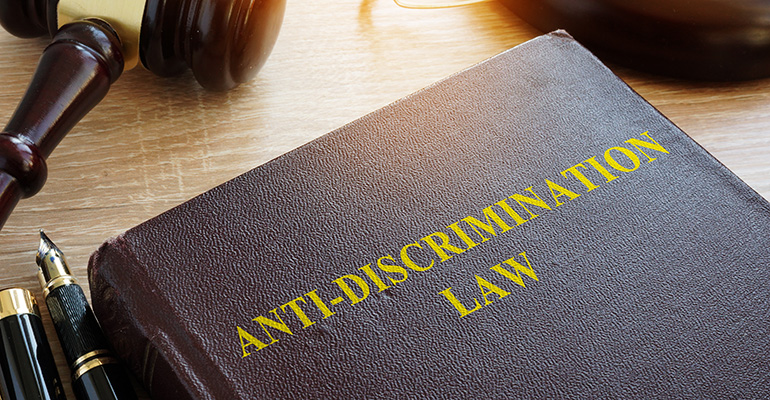
Filing a Discrimination Lawsuit Against Your Employer: What You Need to Know
If you have been a victim of workplace discrimination, you may have grounds to file a lawsuit against your employer. Workers are protected by the Equal Employment Opportunity Commission (EEOC), which enforces laws that ensure fair treatment in the workplace.
However, filing a discrimination lawsuit can be tricky. You need an attorney with experience in these kinds of cases.
When you file an employment discrimination lawsuit, your employer cannot retaliate against you. This means you can still go to work and do your job without worrying about being written up or fired because of your claim.
An employment law attorney who knows how to file a discrimination lawsuit against an employer can make sure you are protected. They can advocate for you if you experience difficulty at work, such as harassment, after you file the claim.
The EEOC enforces laws that specifically protect certain people in the workplace. If your employer has denied a promotion or a transfer to another position based on whether you are pregnant, have a disability, or are an older worker, they may have violated one of these acts:
- The Pregnancy Discrimination Act
- The Equal Pay Act
- The Americans with Disabilities Act (ADA)
- The Age Discrimination in Employment Act (ADEA)
- The Genetic Information Nondiscrimination Act (GINA)
For example, a woman who can demonstrate that her employer is paying a man more to do the same job may file a claim under the Equal Pay Act.
There are other essential things to know about what happens after you file a discrimination lawsuit against an employer. Learning what is required of you, as well as what to avoid doing at work, protects you and your claim.
How Do I File a Discrimination Claim in Florida?
The process starts with filing a complaint with the EEOC. You can contact the local Florida office to file a Charge of Discrimination. You will be asked for your name, address, and phone number, as well as information about your employer, including its name and address, the number of employees, and telephone number.
Or, you can file your discrimination claim with the Florida Commission on Human Rights (FCHR). This agency typically handles claims filed against smaller employers, while the EEOC takes on claims filed against multi-state or larger corporations.
The EEOC and the FCHR work together, so when you file your claim with one agency, the other one is informed. Your lawyer can advise you on which agency to contact.
When filing a discrimination claim, provide as much information as possible about the incident. Valuable items include copies of emails that demonstrate discrimination or records of conversations between you and the person discriminating against you.
Once the EEOC or the FCHR have investigated your claim, they will issue a Notice of Right to Sue, which means that you can now file a discrimination lawsuit against your employer.
What Happens After Filing a Discrimination Lawsuit?
If the EEOC or FCHR determines there is a legitimate concern, the next step is mediation between you and a representative from your company. Mediation is a negotiation between the plaintiff and defendant, supervised by a neutral third party, in which both parties try to reach a compromise.
In employment discrimination cases, the company is often represented by lawyers whose job is to protect the company. You should have your own employment lawyer to represent your interests and protect your rights.
You likely will not see the person or people you named when filing a discrimination lawsuit, but be prepared if one or more are called as witnesses for the company.
If mediation fails and you and your employer cannot come to an agreement, then the lawsuit will go to court, which is a long process and will involve a trial where each side presents its case.
Every discrimination lawsuit trial is unique. Ask your attorney who they expect to testify and how they think it will unfold to give you a better idea of what you will experience during the process.
Is There a Statute of Limitations on Workplace Discrimination Claims?
The statute of limitations for filing a discrimination lawsuit in Florida depends on the type of discrimination you experienced. Any charges that violated federal employment laws (claims filed with the EEOC), including Title VII, must be filed within 180 days from the last discriminatory action in the workplace.
For claims filed with the FCHR, incidents that violated Florida state laws, the statute of limitations is 300 days from the last adverse employment interaction. Florida has a “workshare agreement” between its own agency, the FCHR, and the EEOC, which means that charges filed with one agency are typically considered to be filed with the other as well.
Benefits of Hiring an Employment Law Attorney to Represent Your Claim
You might be wondering, “Can I file a lawsuit against my employer for discrimination?” Yes, but employment laws can be challenging to navigate. A Florida employment lawyer can help you determine whether you have a discrimination case, then work with you to file a complaint with the correct employment agency and defend your interests in court.
Sometimes, people may think they are being discriminated against, but the employer has not technically violated any laws. Determining if you have been legally discriminated against is your lawyer’s job.
Once they have established that you have been mistreated, they can work with you to put a dollar amount on the damages you are requesting, such as lost wages or the difference between what you are earning and what you would have earned with a promotion or transfer.
FAQs
What Is the Average Settlement for a Discrimination Lawsuit?
Settlements can range, and there is no one size fits all. However, the average discrimination lawsuit settlement in Florida is between $5,000 and $80,000.
What Qualifies as a Discrimination Lawsuit?
A discrimination lawsuit is one in which you were mistreated in the workplace based on your race, gender, sexual orientation, disability, age, or pregnancy. Filing a discrimination lawsuit can be complex.
What Happens When You Sue Your Employer for Discrimination?
Once you file a claim, the EEOC investigates your employer. If they find cause for wrongdoing, they will permit you to sue. Then, the case goes to mediation or court.
How Do I Sue My Employer for Discrimination?
First, file a complaint with the EEOC or FCHR. Then, hire a seasoned employment lawyer to help you prove your case effectively.
Have You Faced Discrimination in the Workplace?
If your rights under the EEOC have been violated, you may have a case for discrimination against your employer.
An experienced workplace discrimination lawyer from Wenzel Fenton Cabassa, P.A. can help. Call us today to schedule a free, confidential consultation to discuss your case.
Please Note: At the time this article was written, the information contained within it was current based on the prevailing law at the time. Laws and precedents are subject to change, so this information may not be up to date. Always speak with a law firm regarding any legal situation to get the most current information available.








